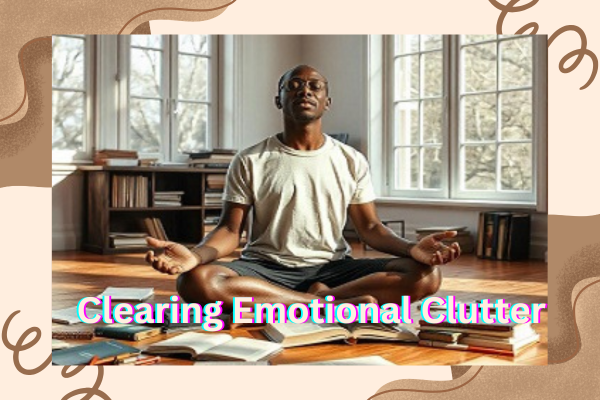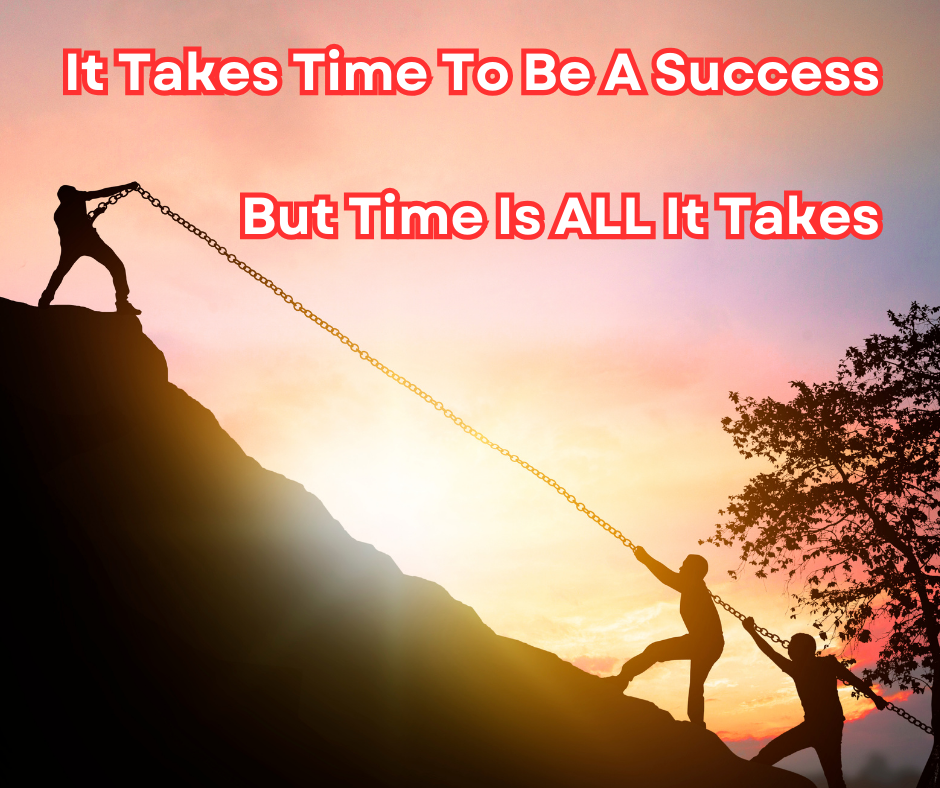Emotional Clutter Clearing
In the journey of personal growth, decluttering our physical spaces is often prioritized, but what about the clutter within our hearts and minds? Emotional clutter can weigh us down, hindering our ability to thrive and find true fulfillment. Just as clearing physical clutter creates space for new opportunities, releasing emotional baggage can free us to embrace a more meaningful and authentic existence. This blog post delves deeper into the transformative process of emotional clutter clearing, exploring the profound impact it can have on our well-being and growth. Prepare to embark on a journey of self-discovery and liberation as we unravel the tangled threads of our inner chaos.
The Impact of Emotional Clutter
Have you ever felt weighed down by emotions that seem to linger in the background, affecting your mood and daily life? This is what we call emotional clutter. Just like a messy room can make it hard to find things or relax, emotional clutter can cloud your mind and make it difficult to focus or feel at peace.
Emotional clutter often consists of unresolved feelings, past experiences, or worries about the future. These can accumulate over time, creating a heavy mental load that can impact your mental and physical health. By understanding and addressing emotional clutter, you can enhance your well-being and improve your quality of life.
Recognizing Emotional Clutter in Everyday Life
Recognizing emotional clutter is the first step towards managing it. You might not always be aware of it, but emotional clutter can manifest in various ways. It might be that nagging feeling of stress that doesn’t seem to go away, or the constant replaying of a past conversation in your mind.
For instance, if you find yourself frequently feeling overwhelmed or unable to concentrate, it could be a sign that your emotional closet needs some tidying. Take note of recurring emotions or thoughts that you can’t seem to shake off. These are clues that there might be some emotional clutter that needs your attention.
Consequences of Ignoring Emotional Baggage
Ignoring emotional clutter doesn’t make it disappear; in fact, it often leads to more significant problems down the road. Unresolved emotions can contribute to mental health issues like anxiety and depression. They can also manifest physically, causing symptoms like headaches, fatigue, or even chronic pain.
- Increased stress and anxiety levels
- Difficulties in relationships and social interactions
- Impaired decision-making and problem-solving abilities
- Potential physical health issues
By not addressing emotional clutter clearing, you’re essentially allowing it to take up space in your mind, which could be used for more productive and positive thoughts and feelings. Therefore, it’s crucial to recognize and address these issues before they escalate.
Why Emotional Clutter Matters
Emotional clutter isn’t just a minor inconvenience; it has a profound impact on various aspects of your life. Understanding why it matters can motivate you to take steps to clear it.
Effects on Mental Health and Well-Being
Emotional clutter can significantly affect your mental health. It can lead to chronic stress, anxiety, and depression, as unresolved emotions often linger in your subconscious, affecting your mood and outlook on life. These emotions can create a sense of unease and restlessness, making it difficult to relax or enjoy life.
Furthermore, emotional clutter can hinder your ability to focus and make decisions. When your mind is preoccupied with unresolved emotions, it can be challenging to concentrate on tasks or make sound judgments. This can affect your performance at work or school and impact your overall productivity.
Impact on Relationships and Social Interactions
Emotional clutter can also strain your relationships with others. Unresolved emotions can lead to misunderstandings, conflicts, and communication breakdowns. You might find yourself reacting emotionally to situations or misinterpreting others’ actions because of your emotional baggage.
Moreover, emotional clutter can prevent you from fully engaging with others, as your mind is preoccupied with unresolved issues. This can lead to feelings of isolation and loneliness, further exacerbating the emotional clutter.
Identifying Emotional Clutter
To effectively manage emotional clutter, you need to identify it first. This involves recognizing the symptoms and signs and using personal reflection techniques to become more aware of your emotional state.
Common Symptoms and Signs
Emotional clutter often manifests as a persistent feeling of unease or dissatisfaction. You might feel overwhelmed, anxious, or constantly worried about the future. Physical symptoms like headaches, fatigue, or insomnia can also indicate emotional clutter.
Other signs include difficulty concentrating, making decisions, or feeling stuck in a rut. If you find yourself frequently replaying past events or worrying excessively about future scenarios, these could be indications of emotional clutter.
Personal Reflection and Awareness Techniques
To become more aware of your emotional clutter, try incorporating personal reflection and awareness techniques into your daily routine. This could involve setting aside time each day to reflect on your emotions and thoughts. Journaling is an excellent way to process your feelings and gain insight into your emotional state.
Mindfulness and meditation practices can also help you become more aware of your emotions and enhance the impact of emotional clutter clearing. By focusing on the present moment and observing your thoughts without judgment, you can gain clarity and perspective on your emotional state.
Effective Strategies for Decluttering Your Emotions
Emotional Clutter Clearing involves more than just recognizing it; you need effective strategies to manage and reduce it. These strategies can help you process your emotions and create a more balanced mental state.
Mindfulness and Meditation Practices
Mindfulness and meditation are powerful tools for clearing emotional clutter. By focusing on the present moment, you can gain a better understanding of your emotions and reduce their impact on your mental state. Start with just a few minutes each day, gradually increasing the duration as you become more comfortable with the practice.
Consider using guided meditation apps or attending mindfulness classes to help you get started. These resources can provide structure and support as you learn to incorporate mindfulness into your daily routine. The goal is to become more aware of your thoughts and feelings, allowing you to process them in a healthy way.
Expressive Journaling for Emotional Release
Journaling is an excellent method for expressing and releasing emotions. Writing down your thoughts and feelings can help you process them and gain insights into your emotional state. Set aside time each day to write freely, without judgment or editing.
Focus on specific emotions or situations that are causing you stress or discomfort. By putting these thoughts on paper, you can gain a new perspective and identify patterns to assist with emotional clutter clearing. This can help you address underlying issues and reduce emotional clutter.
Seeking Professional Guidance
- Therapists and counselors can provide valuable support and guidance for managing emotional clutter.
- Consider joining a support group where you can share your experiences with others facing similar challenges.
- Online resources and self-help books can offer additional strategies and insights.
Don’t hesitate to seek professional help if you’re struggling with emotional clutter clearing. Therapists and counselors can offer guidance and support, helping you develop coping strategies and work through unresolved emotions. They can also provide a safe space for you to express your feelings and gain a deeper understanding of your emotional state.
Besides that, support groups can be a great resource for connecting with others who are experiencing similar challenges. Sharing your experiences with others can provide comfort and validation, helping you feel less alone in your journey.
Daily Habits to Master Emotional Clutter Clearing
Once you’ve started clearing your emotional clutter, it’s important to establish daily habits that prevent it from building up again. These habits can help you maintain a balanced emotional state and improve your overall well-being.
Incorporating Gratitude and Positivity
Practicing gratitude and positivity can have a significant impact on your emotional state. By focusing on the positive aspects of your life, you can shift your mindset and reduce the impact of negative emotions.
- Start a gratitude journal, listing three things you’re thankful for each day.
- Practice positive affirmations to boost your mood and self-esteem.
- Surround yourself with positive influences, such as uplifting books, music, or people.
By incorporating gratitude and positivity into your daily routine, you can create a more balanced emotional state and reduce the likelihood of emotional clutter building up.
Setting Boundaries and Saying No
Setting boundaries is crucial for maintaining a healthy emotional state. By learning to say no and establishing limits, you can protect yourself from unnecessary stress and emotional clutter.
Identify areas in your life where you need to set boundaries, such as work, relationships, or personal commitments. Practice assertiveness and communicate your needs clearly to others. Remember, it’s okay to prioritize your well-being and say no when necessary.
Regular Emotional Check-ins
Regular emotional check-ins can help you stay aware of your emotional state and address any issues before they escalate. Set aside time each week to reflect on your emotions and identify any patterns or triggers.
Use this time to evaluate your coping strategies and make adjustments as needed. By staying in tune with your emotions, you can prevent emotional clutter from building up and maintain a balanced mental state.
Long-term Benefits of Emotional Clutter Clearing
Clearing emotional clutter offers numerous long-term benefits that can enhance your overall quality of life. By addressing and managing your emotions, you can experience improved mental clarity, emotional intelligence, and stronger relationships.
For example, a study published in the Journal of Happiness Studies found that individuals who practiced mindfulness and emotional regulation techniques experienced greater life satisfaction and well-being.
By clearing emotional clutter, you can gain a deeper understanding of your emotions and develop healthier coping strategies. This can lead to increased resilience and the ability to navigate life’s challenges with greater ease.
In addition, improved emotional intelligence can enhance your relationships with others, allowing you to communicate more effectively and build stronger connections. By prioritizing your emotional well-being, you can create a more fulfilling and balanced life.
Enhanced Mental Clarity and Decision-Making
Clearing emotional clutter can significantly enhance your mental clarity and decision-making abilities. When your mind is free from unresolved emotions and distractions, you can focus better on the tasks at hand. This clarity allows you to process information more efficiently and make informed decisions without the interference of emotional baggage.
Imagine trying to solve a puzzle in a room full of noise and chaos. That’s what decision-making can feel like when you’re burdened with emotional clutter. By addressing and managing these emotions, you create a quieter, more focused mental environment that fosters better decision-making. For more insights, you can explore how to clear the emotional clutter that weighs you down.
Improved Emotional Intelligence
Emotional intelligence involves understanding and managing your emotions and recognizing the emotions of others. By clearing emotional clutter, you can develop greater emotional intelligence, allowing you to navigate social situations more effectively and build stronger relationships.
As you become more aware of your emotions and learn to process them healthily, you can better empathize with others and respond appropriately to their emotional needs. This heightened emotional intelligence can lead to improved communication, reduced conflict, and more fulfilling relationships.
Building Healthier, Stronger Relationships
When emotional clutter no longer clouds your mind, you can invest more energy and attention into your relationships. By addressing unresolved emotions, you can prevent misunderstandings and conflicts that might have arisen from emotional baggage.
Moreover, as you practice emotional clarity and awareness, you become a more supportive and understanding friend or partner. This fosters trust and strengthens the bonds you share with others. In turn, these healthier relationships can provide a strong support system, contributing to your overall well-being.
Consider a scenario where two friends have a disagreement. If one is burdened with emotional clutter, they might react defensively or misinterpret the other’s intentions. However, with a clear mind, they can approach the situation calmly and resolve the issue more constructively, leading to a stronger friendship.
Frequently Asked Questions About Emotional Clutter Clearing
Many people have questions about emotional clutter and how to address it. Here are some common inquiries and their answers to help guide you on your journey to emotional clarity.
What is emotional clutter?
Emotional clutter refers to unresolved emotions and experiences that linger in your mind, affecting your mood and behavior. It can include past regrets, worries about the future, or feelings of stress and anxiety. Like physical clutter, emotional clutter can weigh you down and make it difficult to focus or feel at peace.
How do I know if I have emotional clutter?
Identifying emotional clutter involves recognizing symptoms such as persistent stress, anxiety, difficulty concentrating, or feeling overwhelmed. If you frequently replay past events or worry excessively about future scenarios, these could be signs of emotional clutter. Journaling and mindfulness practices can help you gain insight into your emotional state.
- Feeling constantly stressed or anxious
- Difficulty making decisions or concentrating
- Replaying past events in your mind
- Worrying excessively about the future
Can clearing emotional clutter improve my mental health?
Yes, clearing emotional clutter can have a positive impact on your mental health. By addressing unresolved emotions and reducing stress, you can improve your mood, enhance your focus, and increase your overall well-being. Emotional clarity can also lead to better decision-making and stronger relationships, further contributing to your mental health.
Are there professional services that can help with emotional clutter?
Yes, professional services such as therapy and counseling can provide valuable support in managing emotional clutter. Therapists can offer guidance and coping strategies to help you process unresolved emotions and develop healthier emotional habits. Support groups can also provide a sense of community and shared understanding. For more insights, you can explore how to clear emotional clutter.
For example, cognitive-behavioral therapy (CBT) is an effective approach for addressing emotional clutter by helping individuals identify and change negative thought patterns.
In addition to therapy, online resources and self-help books can offer additional strategies and insights for managing emotional clutter.
How often should I declutter my emotions?
Regular emotional check-ins are essential for maintaining a balanced emotional state. Aim to reflect on your emotions at least once a week, identifying any patterns or triggers. This can help you address issues before they escalate and prevent emotional clutter from building up.
- Set aside time each week for personal reflection
- Use journaling or mindfulness practices to gain insight into your emotions
- Evaluate your coping strategies and make adjustments as needed
By incorporating regular emotional check-ins into your routine, you can maintain a balanced emotional state and enjoy the benefits of emotional clarity.
Overall Messages Linked To Emotional Clutter Clearing
- Emotional clutter consists of unresolved emotions and experiences that can impact mental health.
- Ignoring emotional clutter can lead to increased stress, anxiety, and even physical health issues.
- Practices like mindfulness and journaling can help in recognizing and managing emotional clutter.
- Emotional clarity improves decision-making and strengthens relationships.
- Regular emotional check-ins and setting boundaries can prevent future emotional clutter.
















